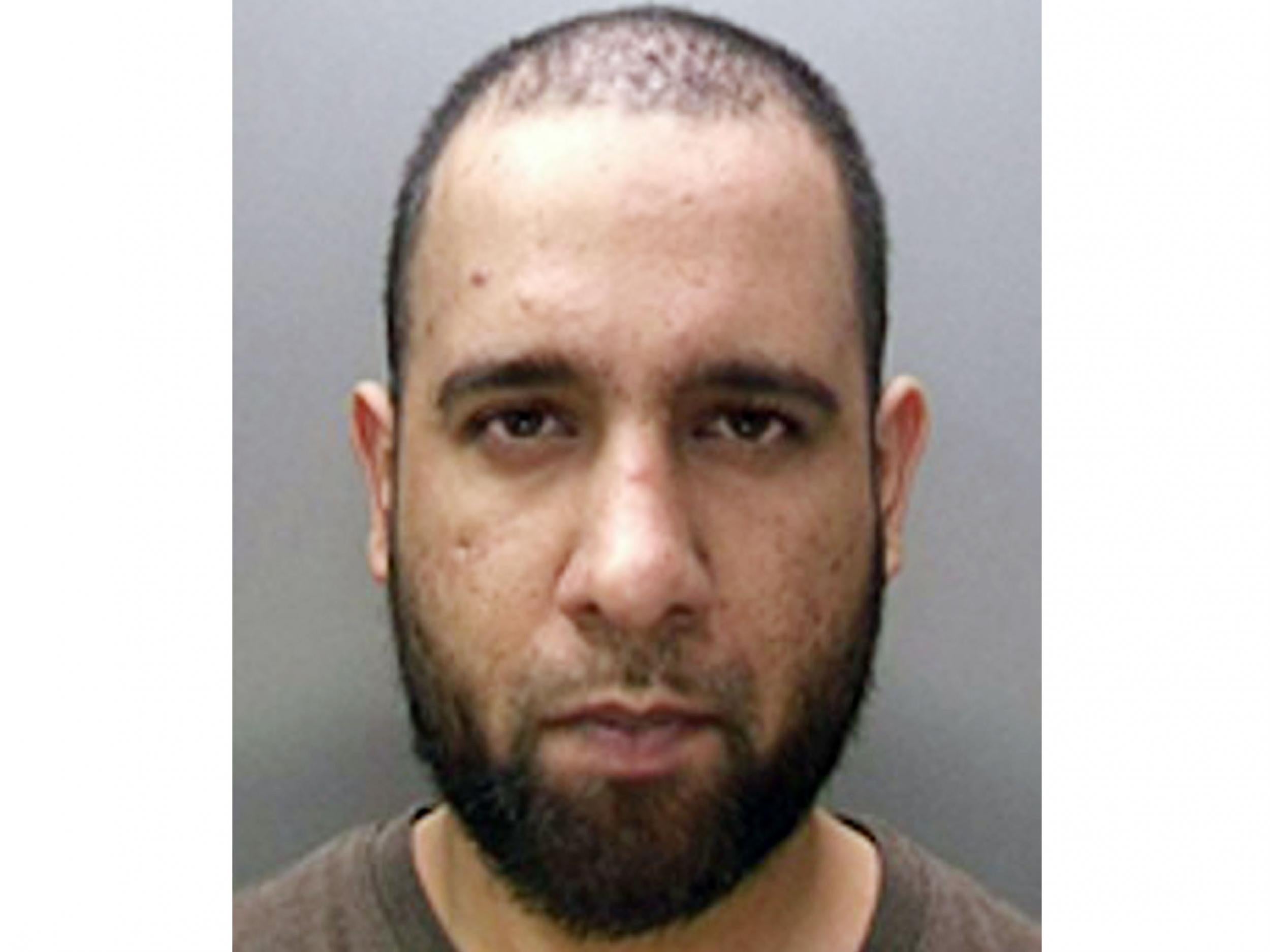Birmingham man found guilty of making pressure-cooker bomb from Christmas lights
Zahid Hussain, 29, convicted of trying to build explosive device filled with shrapnel

A would-be terrorist who improvised detonator parts from fairy lights has been found guilty of attempting to make a pressure-cooker bomb.
Birmingham Crown Court was told Zahid Hussain - who considered railway lines as targets - was “bedroom radicalised” while viewing hundreds of Isis-related images and videos of the war in Syria.
Hussain's trial was told he wrongly believed his non-viable “bomb” - packed with shrapnel - was capable of causing devastation.
The 29-year-old - who was captured on CCTV clambering into a storm drain near a high-speed rail line - was arrested in August 2015 after being seen “patrolling” the streets near his home in Naseby Road, Alum Rock.
Jurors at Birmingham Crown Court deliberated over two days before convicting Hussain of preparation of terrorist acts.
Alternative counts of making explosives and one of attempting to make explosives were ordered to lie on the court file.
Opening the case against Hussain at the start of a five-week trial, prosecution QC Annabel Darlow said the defendant also attempted to create a remote-control “initiator” for a device by modifying a wireless doorbell.
Miss Darlow told the jury: “It is the Crown's case that the defendant, in the months leading up to 9 August 2015, attempted to build a number of explosive devices.
“These included a home-made pressure-cooker bomb containing numerous pieces of shrapnel - in other words, a nail bomb... and a number of improvised igniters which he had made from fairy lights that one might otherwise see on a Christmas tree.”
Miss Darlow said the pressure-cooker did not contain the correct ingredients to constitute an explosive device, but the defendant believed he had created a viable bomb.
Hussain was also found in possession of a number of books which contained instructions on sabotage and guerrilla warfare tactics.
Miss Darlow told the jury: “After his computer was recovered, material showed that Mr Hussain held a pronounced interest in Isis and events in Syria.
“In his own words, he had become bedroom radicalised - turned into a radical by material he had accessed in his own bedroom.
“The defendant had viewed many hundreds of images relating to the Islamic State, violent military conflict and images which included those of Osama bin Laden and the Boston bombers.
“This material gives, you may think, a powerful insight into Mr Hussain's thoughts and ideology during the relevant period in which he engaged in building the pressure-cooker device.”
Hussain was arrested on 9 August after reports of a man carrying a hammer and behaving suspiciously in Anthony Road, Alum Rock.
He was taken to a police station, where officers found he was in possession of handwritten recipes for explosives, a modified fairy light, and a hand-drawn map showing a drainage chamber in Alum Rock.
Officers then went to his home, where they found an “improvised laboratory” and four allegedly viable igniters fashioned from fairy lights, the court heard.
Hussain, who was flanked in the dock by two nurses at the start of his trial but then chose to watch the proceedings via a video-link from a psychiatric hospital, had denied engaging in conduct in preparation for giving effect to an intention to commit an act of terrorism in the UK or assist another to do so.
He was not present in court for the jury's verdicts.
CCTV footage had been played to the jurors showed Hussain inspecting a drainage chamber near a railway embankment in Woodlands Road, Alum Rock, in the early hours of both July 31 and August 2 2015.
Miss Darlow told the court the Crown did not have to prove that Hussain had a “settled, finalised plan” to commit a particular terrorist act, or that an attack was imminent.
But she told the jury: “It may be noted that one recurrent theme in the defendant's activities and interests was undoubtedly railway lines.
“There is no evidence indicating that Mr Hussain had formed a settled plan to attack a particular section of railway line but you may think that it would be reasonable to draw an inference that Mr Hussain had at the least contemplated the use of railway lines as a potential target for a terrorist attack.”
Hussain will be sentenced by Mr Justice Sweeney on a date to be fixed.
Chief Superintendent Matt Ward, head of counter-terrorism for the West Midlands, said the device had the potential to be a “viable” bomb.
He added: “There was no evidence of any intended target or specific attack. But, by its very nature, this could have been an extremely dangerous device.
“The Christmas tree lights also found at his address had been adapted to contain match head powder.
“Each one could be used as an explosive initiator or detonator.”
Copyright Press Association
Bookmark popover
Removed from bookmarks